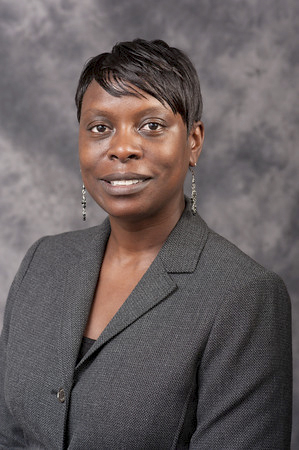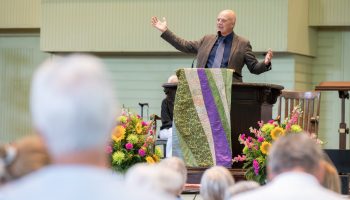MAX ZAMBRANO – STAFF WRITER

Not everyone would be impassioned by both science and religion. Yet they are Margarita Simon Guillory’s beloved areas of expertise.
For the last seven years, she has been in the field of digital religion, where she looks at ways religiosity and emerging technologies are intersecting.
“I didn’t even know that was a thing until I met people like Heidi Campbell (professor of communications at Texas A&M) who is a pioneer of the subfield,” Guillory said. “It really allows me to hone in on two passions of mine.”
At 1 p.m. Tuesday, July 6 in the Amphitheater, Guillory will present her lecture, “To Boldly Go: Technological Frontiers and the Changing Landscape of American Religion,” part of Week Two’s Interfaith Lecture Series, “New Frontiers: Exploring the Future of Religion in America.”
With a bachelor’s degree in chemistry from Emory University and a doctoral degree in religious studies from Rice University, Guillory is now associate professor of religion and African American studies at Boston University.
“I look at the ways in which many Americans, particularly (of) African-American descent, are engaging with forms of technology and new forms of media to express religious identity,” she said.
She is currently finishing a book, Africana Religion in the Digital Age, where she focuses on Black Americans’ use of digital gaming, social media and mobile applications to articulate religious identities.
“Religiosity is not necessarily on its deathbed in this country. People are just practicing differently.”
MARGARITA SIMON GUILLORY
Associate professor of religion and African American studies,
Boston University
Guillory said people always try to engage in some sort of religiosity, but because of COVID-19, people now use new digital tools as they become available or necessary. She said new technology usually impacts culture, including religion, in some way.
“You cannot have these wonderful digital tools and expect people to practice religion the same,” she said. “The pandemic is my proof. That’s my data.”
Guillory said numbers show some churches have seen a decrease in in-person attendance during the pandemic, but an increase in online attendance.
“Religiosity is not necessarily on its deathbed in this country,” she said. “People are just practicing differently.”
This new way of practicing religion will be part of her lecture today.
“I’m going to use the ‘frontier’ metaphor as a lens to look at this relationship between American religiosity and technological advancement,” she said.
As a professor, Guillory likes to both teach and learn from her students.
“When I enter that classroom, I make myself vulnerable,” she said. “I am not just the disseminator of knowledge, but I am also on the receiving end. I expect to receive something from my students.”
She said discussions and interactive lectures help students feel comfortable talking with her. This is a style she picked up during her nine years as a high school science teacher.
One thing she learns every semester from her students is to be open to new things, which she said keeps her mind young.
“They taught me to not be so stagnant, and be malleable and flexible in my thinking and my approach and how I study,” she said.
In her first visit to Chautauqua, Guillory is looking forward to sharing her thoughts with a community of open-minded learners. She also expects to learn something from others while here.
“I think I’m most excited about what I also receive in that rich and historic place,” she said.




